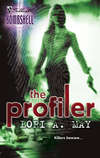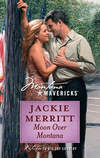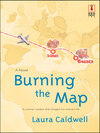Kitabı oku: «A Clean Slate», sayfa 3
4
An hour later, Laney and I were sitting on yellow silk couches, sipping tea in a huge dressing room of the personal shopping department of Saks on Michigan Avenue. The person that Laney knew wasn’t working, but another woman, named Melanie, had proclaimed it a slow weekend and told us to come in immediately.
Melanie was a willowy frosted-blonde who could have been anywhere from thirty to fifty. She exuded calm and elegance as she sat across from Laney and me, handing us photos and opening pages of fashion magazines, pointing to styles she thought might look good on me. We’d already established that I wanted mostly casual clothes, since I didn’t have a job, but Laney thought I should also get a few dressy things in case something came up. Since I’d been a hermit for the past five months, I couldn’t imagine what would “come up” to cause me to need a beaded silver gown, yet I told Melanie I’d try it on.
“All right, ladies,” she said, standing up and tucking a lock of her perfect blond hair behind her ear, “I have an idea of what you’re looking for, so now I need to measure Kelly.”
I stood on a pedestal, while Melanie’s arms flew around me with a cloth tape measure, hugging my hips, slipping around my breasts, my waist. “All right,” she said, “we’ll get you mostly fours and sixes.”
“Size four and six?”
“Definitely,” Melanie said, rolling up her tape measure.
This should have been a cause for celebration, since I’d always been an eight or a ten. Always. My whole life, no matter how hard I tried to lose a few pounds for bathing suit season, I always hovered around the same weight, the same sizes. Laney and I glanced at each other briefly, neither of us acknowledging exactly how or why I’d lost that weight. I reached down and felt my hipbones through the baggy jeans and sweater. They were prominent for the first time in my life. I must have been either eating like crap or barely eating at all.
“You ladies relax,” Melanie said with a calm smile, making notes on a small leather-covered notepad. “I’ll be back shortly.” Before she left, she poured us more tea, replenishing the biscuits she’d laid out on a silver tray.
“I could get used to being waited on like this,” I told Laney, making my voice light, trying to instill some levity back into the situation. I made a point of breaking a biscuit in half and popping it into my mouth.
“No shit.” She sipped her tea, holding her pinky out for effect, and we both laughed, relieved.
“I love you, you know.” I was suddenly struck with how amazing Laney must have been to me over the past months.
“I know.” She gave me a little smile over her teacup.
It scared me to think about what could have happened if Laney hadn’t been there for me, but if I thought too much about the last few months, they might come back. I might remember. And as odd as it felt to have this gap in my brain, it was better than the alternative.
“So tell me,” I said. “Are you still dating Archer?”
“Archer? Archer was eons ago!”
I imagined Archer in my head—a tall, skinny bass player in a jazz band, with stringy blond hair—but I couldn’t remember learning they weren’t dating anymore. Not that Laney and he had dated very long—not that she dated anyone for very long—but he was the last boyfriend I could recall.
“Is there someone new?”
She nodded.
“Name, please.”
“Well, his real name is Gary.”
“And what’s his not-so-real name?”
She smiled and did that whistle of hers. “Gear.”
“Excuse me?”
“Gear, okay? He calls himself Gear.”
“And what band is Gear in?” This wasn’t a hard question for me to come up with. Laney nearly always dated musicians. I think she’d done it initially to piss off her four older sisters and her parents, but after a few years of music men, Laney had begun to take guitar lessons, and now she was hooked on the whole scene. Her dream was to be in a band herself.
“High Gear.”
“Excuse me?”
“You heard me. High Gear. They’re very talented, actually.”
“I’m sure. And how did you meet Mr. High Gear?”
“Well…” She nearly sighed. “I was taking a lesson.”
She looked at me for confirmation that I remembered the guitar lessons she took at the Old Town School of Music, and I nodded.
“So I was taking a lesson, working on this song I’d written.”
“You’re writing songs now? That’s amazing!”
“Lyrics, too. So anyway, the door was slightly open and I played this damn song for probably the whole hour, and when I opened the door, he was just sitting there in the hallway.”
“Gear?” I asked, trying not to giggle at the name, although Laney probably wouldn’t have noticed. She looked positively dreamy.
“He told me I was talented. He told me he thought my song was beautiful, and that was about three months ago. Three great months.”
“Wow.” I was struck by how romantic their meeting was. There was something so Shakespearean about him being drawn by her song.
It was completely different from the way I’d met Ben—a handshake at work when he started two years after me, and then an awkward, sloppy kiss a few weeks later following a Bartley Brothers happy hour.
I was about to ask Laney what kind of music High Gear played when Melanie sailed into the room holding aloft an armload of hangered clothes. “There’s more coming,” she said, “but this should get us started.”
For the next hour and a half, I tried on more outfits than I knew existed—black pants and jeans of every style, silk sweaters, wool pantsuits (“Good for job interviews, if you decide you want one,” Laney said), trendy skirts with splashy prints, clingy tops, leather boots, suede boots, short boots, high boots and every other shoe under the sun.
Ben used to like me in pastels—pink, powder-blue, lilac. “Soft and sweet,” he’d said. Although I didn’t despise those colors, I didn’t love them, either, and yet little by little my closet had become full of them. I wasn’t one of those women who would just change everything about herself in order to keep her man happy, but I had changed minutely, piece by piece. It was enough to eventually alter most of my wardrobe, to leave me feeling as if I didn’t know what colors I liked anymore.
I noticed now that I was gravitating more toward the basics, sturdy, elegant colors like black, tan, cream and gray. Colors you could build a whole wardrobe around.
Meanwhile, Laney sat on the couch, offering a running commentary on each piece. The problem was that she liked nearly everything.
“Lane,” I said, spinning around to face her. “I can’t buy every single thing.”
“I don’t know why not. You’ve got money to spare from your severance package, and you look amazing in everything.”
I turned back to the mirror and looked at the soft camel pants I had on with an ivory turtleneck and a pair of high-heeled camel boots. Okay, Laney had a point. It wasn’t that I thought I looked so fantastic, but the clothes were fitting me better than ever before. Where I’d been curvy in the past, I was more angular from the weight I’d lost—angular being an adjective I’d only dreamed of applying to myself in the past.
“The trousers look fabulous on you,” Melanie said. By this time, she had realized that I was definitely in a buying mood, and champagne had replaced the tea. She stood now with two other assistants, all of them studying me, nodding along with her.
I shrugged. “Okay, I’ll take the pants.”
“And now,” Melanie said, floating toward me with a garment bag hanging gingerly over her arms, “let’s try this.”
It was the gown from the photo, and it was stunning. I slipped it on, stepping into the high sandals they’d given me. The lining was silky and smooth. When I zipped the dress up, it felt like a second skin.
I came around the curtain, and as I stepped onto the pedestal I heard a gasp—Laney’s. I looked into the mirror and saw what she meant. It was spectacular. The dress was sleeveless and formfitting. It was cut so well, with its high neck and equally high slit, that it could have made anyone look good. The silver bugle beads glimmered with each movement as I turned this way and that. It was the most beautiful dress I’d ever seen.
I looked down at the price tag and tried not to swear. It was half a mortgage payment—if I’d still had a mortgage to pay off.
“You have to get it,” Laney said, a hand on her chest. “You look fabulous.”
“But it’s crazy money.”
“Don’t care.” Laney raised her champagne flute.
“Where would I wear it? I mean, what are the chances of me going to a gala or something if I’ve been needing antidepressants just to get out of the house?”
Melanie and her assistants sent each other questioning looks, probably wondering if they were dealing with an escapee from a mental hospital.
Laney shook her head and gave them a smile as if to say She’s kidding. “Kelly, it’s perfect on you. You have to have it. And who knows what will happen? Maybe there’ll be a black tie wedding.”
“Yeah, maybe Ben and Therese’s.” The thought almost made me fall off the heels.
Laney must have seen my stricken face because she jumped up, putting her arms around me from behind. “Look, this is a special dress. You probably won’t ever again find something this amazing. Think of it as a treat to yourself after everything you’ve gone through. And I’ll make you a deal. If after a year you haven’t found someplace to wear it, I’ll buy something fabulous, too, and we’ll take each other out for an outrageous night in our dresses.”
I looked at myself in the mirror again. I’d been so frugal for years, saving up to buy my town house, the one where Ben and I would start our lives together, and what did I have to show for it? Not a goddamn thing. I smoothed the dress over my stomach, although it hung perfectly. I watched the light glinting off the beads.
“Deal,” I said to Laney. I turned and hugged her back.
Fifteen minutes later, I was ready to go and wearing a new outfit—a silky, bronze sweater, a pair of dark jeans and tall, black leather boots. As I bent over to sign the credit card slip, I flipped my hair over my shoulder and got a rush of that damn-I-look-good feeling. It’d been a while. But then I got another rush, this one much more panicky, and my hand froze over the slip. What if Laney was wrong about how much money I had? What if I’d just rendered myself penniless?
“Everything all right?” Melanie said.
“Uh…” I tried not to focus on the grand total at the bottom. If Laney was wrong, if I was broke, I’d just have to return everything. “It’s fine,” I said, and I scrawled my signature with a flourish. “Thanks for everything.”
“Oh, it was a pleasure,” Melanie said. “A real pleasure.”
I’m sure it had been a great pleasure, since my whopping purchases had probably provided Melanie with her sales quota for the month, but I kept my mouth closed. Despite the moment of panic, I was entirely too pleased. I knew that this frivolous shopping spree couldn’t provide answers about my memory loss or stem the depression I feared might return; yet it had made me feel a hell of a lot better.
“May I make one more suggestion?” Melanie said.
She turned me around to the mirror and fingered my dull hair. “Can I send you to a friend of mine at Trevé?”
I knew what she was trying to say. My hair was hell. Something needed to be done. But Trevé was the hottest salon in the city.
“I’m sure I wouldn’t be able to get in there anytime soon,” I said.
“Let me try.”
She whipped out a cell phone the size of a Tic Tac box and raised it to her ear. “Tommy,” she said. “It’s Melanie from Saks. Tell Lino I’m calling in my favor. I need an appointment today.”
She paused, listening.
“No, it’s not for me. A client. Kelly McGraw.” Another pause. “Perfect,” she said with a smile. “Kisses to Lino.”
She clicked her phone off and looked at her watch. “You’ll have to get a cab. Lino is expecting you at Trevé in twenty minutes.”
We could hear the music pumping even before we walked in the door. A huge doorman with a bald head held the glass door for us. “Welcome to Trevé, ladies.”
“You’d think they’d have somebody with hair,” I said as we muscled my Saks bags through the doorway.
Laney laughed, or at least I could see her laughing, although it was hard to hear her above the thumping music. The front desk was at least six feet tall and spray-painted with gold graffiti. I stood on my tiptoes and screamed my name to the collagen-lipped receptionist, who led us upstairs to the stylists’ stations, where the music was, thank God, being played at a much lower volume.
I was seated on a chrome-and-leather chair, my bags piled high in a closet, while a stool was pulled up for Laney, and two more glasses of champagne were delivered to us.
“Feel free to lose your memory every Saturday so we can do this once a week,” Laney said.
I knew she meant it in a kidding way, but it reminded me of my horrible morning, of that sheer fear I’d felt when Beth Maninsky opened my door.
“You okay?” Laney looked a little chagrined at her comment.
I shook my head, shaking off the thoughts at the same time. “I’m great.”
I was leaning forward, my glass outstretched to toast with Laney, when I heard a cry. I swung around to see a short, deeply tanned man with dark hair and at least two coats of mascara around his dark eyes.
“My God!” he said, before he rattled off a litany of what sounded like Italian words. “Melanie didn’t tell me it was this bad.”
He spun my chair around so that I faced the mirror, and began pulling up strands of my hair, studying the split ends in the light.
“I take it you’re Lino,” Laney said. She put her champagne glass down on his station with a clunk. She had that defensive tone in her voice, the one that said, I’ll break your legs if you mess with my friend, and I loved her for it.
“Signorina,” he said in a heavy Italian accent, “I mean no harm.” He squeezed my shoulders and I looked at him in the mirror. His long lashes batted a few times. “You’re gorgeous,” he said to me. “Bellisima. Look at your body, your clothes. Beautiful! But this hair! I have no time for this.” He shuddered and turned to a boy who looked all of seventeen. “Get her shampooed. Now.”
After my head was scrubbed and then massaged until I was in a near dreamlike state by the underage minion, I was caped and back in front of Lino, who began furiously working away with his scissors.
“Shouldn’t you ask her what she wants?” Laney said, the snippiness in her tone matching the sound of the scissors.
“No.” Lino gave my hair another decisive clip. “I have no time for talking. I decide. Clearly, she does not know what is right for her hair. We’ll do a little cut, molto bene, and then you two ladies will be gone.”
“But that’s ridiculous!” Laney said. “You have to take your time. This is her hair we’re talking about! You need to find out what she wants. She’s an adult, she should decide—”
“Lane,” I said, holding my hand out. I couldn’t actually see her, since Lino had my wet, wonderful-smelling hair hanging in front of my face like a curtain. “It’s fine.”
“You don’t care what he does?”
I considered her question for a second. Usually, I was concerned about what Ben would say if I did something nuts with my makeup or hair, of what they would say at work, but that didn’t matter now, and I found myself pleasantly surprised. I was in for a change, and I told Laney as much.
“Mmm-hmm,” Lino said.
“So where are you from in Italy?” Laney asked. She sounded like she was trying to be nice, which I appreciated, since this guy had both my head and his sharp silver blades in his hands, but I sensed something mischievous in her voice. Although “Laney Pendleton” might not sound Italian, she was. Her mother’s family came from Milan. Laney herself had been to Italy at least ten times.
“Napoli,” Lino said, the scissors flying furiously.
“Oh, so you’ve been to Ravello, right?” she said.
“Mmm-hmm.” This time there was no smugness to his tone.
“Have you been to that hotel—what’s it called—Palazzo Mazzo?”
“Of course.”
Laney kept peppering him with questions about the Amalfi coast, about Positano and Capri and Sorrento. Lino grew more terse with each query, his scissor-snipping growing faster and faster until I felt I had to put a stop to it.
“What’s going on here?” I said, ducking my head away from the approaching blades.
Laney had a sadistic-looking grin on her face. “He’s not Italian.”
“Mon Dieu!” Lino said, slapping his hands to his chest so that the scissors were pointed at his neck as if he might off himself. “That’s not true!”
“Oh yes it is.” Laney’s face was smug, almost triumphant. “First of all, mon Dieu is French, not Italian. Second, there is no hotel named Palazzo Mazzo in Ravello, and Salerno is not right next to Capri. You’re a fraud!”
Behind me, Lino froze, the scissors poised at his neck for a long moment. Then he leaned over my shoulder, toward Laney. “Keep your voice down, you little hussy,” he said in a clear Southern accent.
Laney and I both gasped. “Where are you from? Mississippi?” I asked.
“Tennessee. And don’t you say a word.”
“What’s it worth to you?” Laney still wore that sadistic smile.
Lino glanced around, then leaned back into our little circle again. “I’ll give her a free color, I’ll pop for a makeup application and then you two get the hell out of here.”
“Done!” Laney said, and they shook hands over my cape.
Two hours later, I emerged from Trevé, my hair a gleaming, coppery-caramel color and styled in a chunky, layered bob that made me feel cutting edge (no pun intended) and gorgeous. My face had been cleansed and moisturized and powdered and plucked; my eyes were smoky with brown shadow; my lips glistened with gloss.
“Girl—” Laney looked me up and down as we stood trying to hail a cab “—we are going to have one hell of a night.”
5
We went to Laney’s, since I had no desire to go back to the high-rise I couldn’t remember, and I had enough clothes now to last me a month. Laney had a loft apartment in Old Town, with lots of exposed brick and artsy charm.
She cranked up a Rolling Stones CD and tossed me a beer. It was dark outside, but the apartment seemed to be glowing. Because of our afternoon champagne infusion, we were feeling a little goofy, and we danced around her kitchen for a while, singing into our beer bottles.
“All right,” Laney said after a few songs, “I need to redo my makeup and find an outfit that’s going to make me look half as amazing as you. Come to my room and help me decide what to wear.”
“Sure.”
As I walked through the living room toward the bedroom, my eyes caught on the baskets of photos Laney kept by her fireplace—one for childhood and family photos, one for high school and college, and two more for recent pictures.
“I think I’ll flip through these for a second,” I said, sinking onto her couch and picking up the high school/college basket.
“No problem.”
I think she sensed what I wanted—to test my memory, to make sure it wasn’t only the last five months that I couldn’t remember.
She turned the music down a little, and soon I could hear the slide of hangers and the opening of drawers from the gaping door of her bedroom.
The few photos on top of the basket were of Laney’s college friends, people I’d known vaguely from when I visited her during that time. Normally, I would have flipped through all of them, but I was more focused now. I was looking for pictures of myself.
The first one I came to was a shot of Laney and me in Tijuana, and I got a swoop of relief through my belly, because I could remember that time perfectly. I could even remember the hot Mexican guy who’d taken the picture. We’d been in San Diego for spring break, and we took a day trip into “TJ,” as all the San Diegans called it. We were giddy with the exchange rate and spent the day buying bright, coarse Mexican blankets and silver jewelry before we spent the rest of our money on tequila shots and margaritas. The photo in my hands was taken right before the last bus back across the border, and both Laney and I were rosy with drink, huge careless smiles playing on our faces.
As I dug deeper, I hit on smaller photos, rounded at the corners, taken when 3x5 was the usual photographic dimension. One of my favorites was there—Laney and I standing in front of a row of gray lockers, my Nikon on a strap around my neck, Laney clutching a clipboard to her chest. It had been taken only three days after we’d met, and once again, I had a near perfect memory of that day. We’d been just outside the yearbook office when someone had said they needed a photo of us for the staff section. Both Laney and I wore too much makeup and tidal wave bangs—bangs that arched above our foreheads and came to rest below one eye. Right before the photo was taken, Laney leaned in and threw her arm around me, a gesture that made me nearly weak with relief. I’d hated being new in the school, but after that moment, I knew I was going to be okay.
I picked through the basket, looking for pictures of my old boyfriends, thinking that maybe the breakup with Ben had something to do with the memory loss, and maybe I wouldn’t remember my exes. But I easily found and remembered a picture of my high school boyfriend, Ted, whom I’d lost my virginity to in the stockroom of the convenience store where he worked, and Steve, my college boyfriend, who looked stoned as he posed in front of one of the landscapes he’d painted.
Laney has always called me a serial monogamist, but it’s not really an accurate term. While it’s true that I’ve had almost as many boyfriends as I’ve had first dates, I don’t go from one to another to another without a break. In fact, I’ve always tried to avoid that pattern, having seen my mother date a long string of guys, only to end up with heartbreak. Instead, I have serious boyfriends, and if we break up, then I’m alone—no blind dates, no pickups in bars—until I find someone I truly, truly want to go on a date with. Laney claims this trait has weeded out far too many candidates and leaves no room for flings. Her point is that flings are, by design, to be had with completely inappropriate men—the ones you find attractive, but would never date for one reason or another. And yet the whole fling thing has always seemed a waste of time to me, particularly given my goal of being married with one kid by the time I’m thirty-five.
I picked up a stack of pictures toward the bottom of the basket and quickly discarded them one by one onto the coffee table like a blackjack dealer. With each slap of a picture, I mentally listed the who, where and when, building up a confidence that most of my memory was intact. Senior prom with Ted, me in a hideous chartreuse gown that make me look jaundiced; Laney and me after a football game, clearly about to pass out; on the beach in Florida with Laney’s sister, Sophia; Laney’s kleptomaniac college roommate, Tara. When I came to one of Laney, Dee and me, my hands froze. I’d been a senior in college, full of myself and how cool I was. Dee was still in high school and had used the trip as an excuse to “check out the campus,” when what she really wanted was to drink beer and hang out with me.
In the photo, Dee’s light brown hair is short, and she’s laughing—as she so often was—sandwiched between Laney and me, her head turned slightly toward mine. The pain of losing her rushed in like a hurricane.
According to Ellen Geiger, the psychiatrist I’d seen, everyone who suffers the loss of a loved one ruminates (her word) on the last time they spoke to or saw the person. I was not the patient to change that pattern. For months afterward, it was all I could think about—the last time I’d spoken to Dee and the last time I’d seen her, in January.
Dee had driven up from the University of Illinois to visit me, and we’d spent the weekend in our usual way—shopping during the day with Mom for clothes and boots and jewelry we didn’t need, and at night going out with Ben and Laney, regaling them with stories of the astounding mix of freaks and psychopaths our mother used to date. Ben and Laney adored Dee as much as I did. It was hard not to. She had a little-girl way of holding her head down and drawing her eyes up that made you want to take care of her, and yet she could drink like a Russian soldier. And that laugh of hers was impossible not to love—a buoyant, soft-at-first chuckle that grew into a belly laugh.
On Monday morning, when Dee was supposed to leave, it was a silver-gray day, the sidewalks slick with ice, the city covered in a freezing fog. I had an early meeting, and so I was gone before she got up, leaving a note to help herself to breakfast and have a safe trip back. The usual banalities. She called me at work, though, wanting to chat, telling me about some dream she had about lobsters, relating a story she’d seen on the news that morning, and finally asking me where I kept the coffee filters.
“Third cabinet from the fridge.” I tried not to sound annoyed. Dee loved long, chatty phone conversations (I didn’t) and she was always calling me at work during her study breaks, hoping for an hour-long talk.
“What about bagels?” Dee asked. “Do you have any bagels?”
“I don’t know, Dee, look around.” I scrolled through my e-mails, anxious to get back to work. My meeting had been disastrous, and the market had just opened.
“Maybe I should visit Mom at work before I leave. What do you think?”
“Whatever you want.”
“I haven’t even seen her office yet. Where’s the building? It’s somewhere on Michigan, right?”
“Michigan and Randolph.”
“Yeah, maybe I’ll just stop in. Although I do have two papers to write.”
At that point, Ronald Han, my boss, who was known around the office as Attila the Han, stopped by my desk and stood over me with a frown, brandishing a stack of faxes. He drew a line across his neck with his finger.
“I’ve got to go, Dee.”
“Oh, all right. But what do you think? Should I pop in to see Mom?”
Attila slapped the faxes on his palm.
“I think you should just get on the road.” I deduced that if she stopped in to see Mom, she might very well “pop in” to see me, too, and it was proving to be a much too hectic day for visitors.
“Yeah, you’re probably right.”
“Okay, see you then,” I said, and hung up.
Two hours later, I got a call from the state police, and two hours after that I saw Dee for the last time when I identified her bloody body at Cook County Hospital.
The memory of that morning reverberated in my brain now until I had a hard time breathing, wondering if maybe I was going under again, if I would soon forget this moment, too. But after a second, the air was a little clearer, and I was still there, still holding her picture, still missing her like crazy. At least, I consoled myself, I remembered. I seemed to recall everything about myself and my history except the very recent past.
With that thought, I picked up Laney’s latest basket of pictures, the ones taken during the last few years, and sure enough, I seemed to recognize all those as well. Actually all but one—a photo of Laney and me leaning together at a lunch table. I recognized the restaurant, a brunch place where we frequently met on Sunday mornings to dissect our weekends. Based on our clothes, the photo had probably been taken in summer…but I couldn’t remember having this picture taken at all. My earlier confidence evaporated, leaving a hollow feeling in my stomach.
I noticed how odd I looked in the photo. It wasn’t my hair, which was pulled back the way I used to often wear it, or my outfit of khaki shorts and a T-shirt. It was my face, and the utter lack of a genuine expression on it. My head was next to Laney’s, and she was smiling widely, but my face was frozen. Sure, I was smiling, but it was forced and tight, the grin failing to reach my eyes.
Laney slid into the room then, holding her hands away from her body for an outfit inspection.
“Adorable,” I said. She wore a shorter black skirt, a sweater in a deep wine color and matching lipstick.
“Thanks.” She dropped her hands. “What’s that?” She came around the couch and stood behind me, looking over my shoulder.
I lifted the photo so she could see. “It doesn’t even look like me.”
A second went by. “It really wasn’t you,” she said. “You hadn’t been you for a long time.”
I looked at my grim image one more time before I tucked it, facedown, into the bottom of the basket.
“Where are we going?” I’d been so distracted by my haunted face in that picture that it hadn’t dawned on me to ask the question until we were already in a cab, flying down Lincoln Avenue, past lit-up bars and restaurants and outcroppings of brick town houses much like the one I used to own.
“Tarringtons,” Laney said.
Tarringtons was one of our old haunts, a place where we used to know each and every bartender. I couldn’t say when I’d last been there, but I was sure it had been over a year. Ben and I had fallen into that relationship stage where we didn’t go out that often, happy to stay home, tucked away in the town house, making linguini and watching movies (weird little independent films if it was my night to pick, The Godfather or some other mobster flick if it was his). The problem with that stage, of course, is that when you come out of the relationship, as I apparently had, you feel odd going back into the old stage, the go-out-every-night-and-make-witty-small-talk stage. I hoped I was up to it.
The smoke hung like nimbus clouds from the ceiling as Laney and I walked in. Tarringtons was a long, thin, oak-lined place with a wooden bar to the left, the rest of the place scattered with stools and tall round tables. At the front, a shaggy guy played acoustic Van Morrison tunes.











